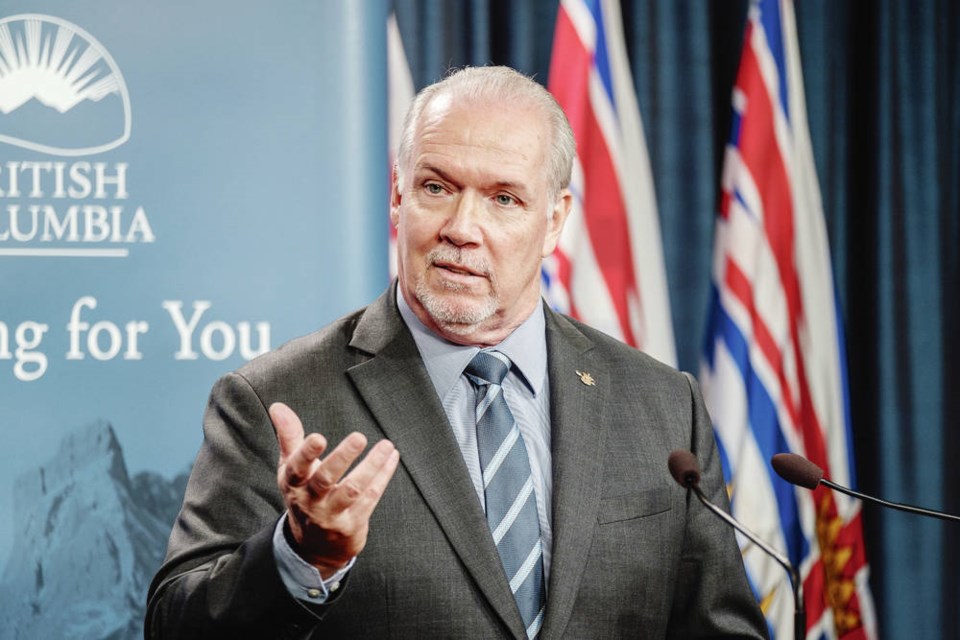I was struck by the immense irony of John Horgan’s recent exhortation to young people not to blow it for the rest of us with respect to COVID. The irony, of course, is that he and his government are blowing it for the younger generation by continuing to treat the environment as a resource for industrial activity and failing to protect species at risk.
In doing so, they jeopardize the future for the next generation in order to achieve their more immediate economic and political gains.
It seems I was not alone in seeing the irony. As I was preparing this column, I learned that the Dogwood Initiative will be releasing a response to Horgan from high school student and Dogwood staff member Nahira Gerster-Sim, making the same point. (By the time you read this, I imagine it will have been released.)
The issue was neatly summarised by Martyn Brown, chief of staff to former B.C. Liberal premier Gordon Campbell and a member of the weekly political panel on CBC Radio’s On the Island. In the April 9 broadcast, he described the NDP as “a labour government, not an environmental government,”saying that when there is a clash between what he called “brown” (industrial development) and green values, “the brown guys win.”
This is a fundamental point: From the perspective of nature, it doesn’t matter much whether it is free-enterprise capitalism, state capitalism or socialism, all are intent on exploiting nature for personal or collective profit and human wellbeing, and all put the environment second at best. The only real difference is the way in which the proceeds will be divided up across society, and the degree of “greenwash” that will be applied.
Which is why we need Green parties, because they are the only political grouping that recognizes the total dependence of people on the well-functioning of the planet and promotes an economic and social system that can live within the means of the Earth.
The neglect of environmental concerns by the NDP government is apparent in many areas. Foremost is Horgan’s disavowal of his own commitment to bring in a Species at Risk Act. While his 2017 mandate letter to his Environment minister clearly states: “Enact an endangered species law,” Susan Cox reported in The Narwhal in April 2019 that Horgan had told reporters: “There’s no significant species-at-risk legislation on the docket for the foreseeable future here in B.C.”
Presumably, he had realized that protecting caribou, orca, salmon, owls or old-growth forest — arguably an eco-zone at risk — would present a problem for the forestry, mining, fossil fuel and other industries that continue to plunder B.C. So in the interests of profit before planet, the planned act had to go. And there is no mention of it in this week’s Throne Speech, although there is a vague reference to “build on the progress we have made recently — like … protecting wildlife and habitat.”
In fact, if the next generation is looking for an indication of the B.C. government’s neglect of their future, the Throne Speech is a good place to begin. While it may seem laudable, as the government states, to put people first, it is a problem for future generations if it means neglecting nature.
People and the planet need to be dealt with together and with an eye to the long-term, which is why, at a time of transition and recovery, at a potential turning point, the government should have announced the creation of a Wellbeing of Future Generations Act and Commissioner, based on the Welsh model.
There is so much missing in the Throne Speech that I will have to return to it next week. But a clear and consistent picture emerges: the NDP government has little interest in protecting nature in B.C. if that means getting in the way of logging, mining or any other harmful resource-extraction activity.
In failing to adequately protect and restore the forests, oceans and species that are the beating heart of B.C., Horgan’s government is jeopardizing the ecological and social wellbeing of future generations. He is blowing it for the young people he was so busy excoriating. No wonder they are ticked off.
Dr. Trevor Hancock is a retired professor and senior scholar at the University of Victoria’s School of Public Health and Social Policy.



